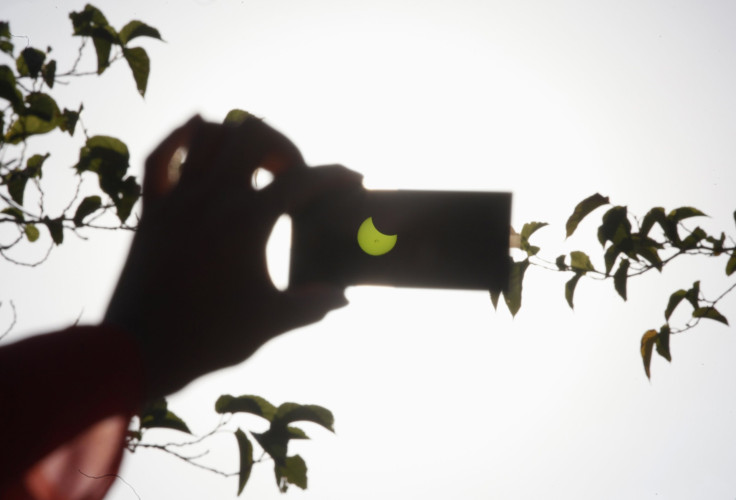Total Solar Eclipse Is Visible In North Atlantic, Partial Eclipse In Europe, Asia And Africa This Week

A total solar eclipse will occur during the spring equinox on March 20. The north Atlantic Ocean's Faroe Islands and the Norwegian archipelago of Svalbard will be prime positions to witness the event, while residents of continental Europe, North Africa and northern Asia will be able to view a partial solar eclipse.
While Friday's solar eclipse will not herald the end of the world, residents of the U.K. will not want to miss the event, since they'll have to wait 11 years until the next partial solar eclipse, BBC reported. In the U.K., the partial solar eclipse will start at 8:45 a.m., local time, and peaks at 9:31 a.m., local time.
"An eclipse occurs when one celestial body appears to partially or totally block the light from another celestial object -- as seen from a specific location. Solar eclipses can only occur during the new moon, when the moon is between Earth and the sun -- and the Earth, moon and sun form a straight line," Jane Houston Jones, from NASA's Jet Propulsion Laboratory, said.
Interestingly, the solar eclipse may affect power grids in Europe, and Germany will be a test subject for researchers during the event. Opower wrote a report looking at Germany's solar power production, which comprises around 7 percent of the country's electricity.
"In the span of 75 minutes, the moon will go from occluding 1 percent of the sun’s glow to 73 percent. Solar production will fall, and fall fast -- up to 2.7 times faster than it normally ever does, according to an analysis by the University of Applied Sciences in Berlin, Germany. The effect is similar to turning off a medium-sized power plant in Germany every minute -- for a full hour," Opower explained. As the eclipse ends, Germany's power grid will have to deal with a huge influx of solar energy.
If you're looking forward to the solar eclipse, make sure you have the proper equipment. Viewers should not look directly at the sun -- instead they should view the eclipse using glasses with approved filters or by creating a pinhole projector.
© Copyright IBTimes 2024. All rights reserved.






















